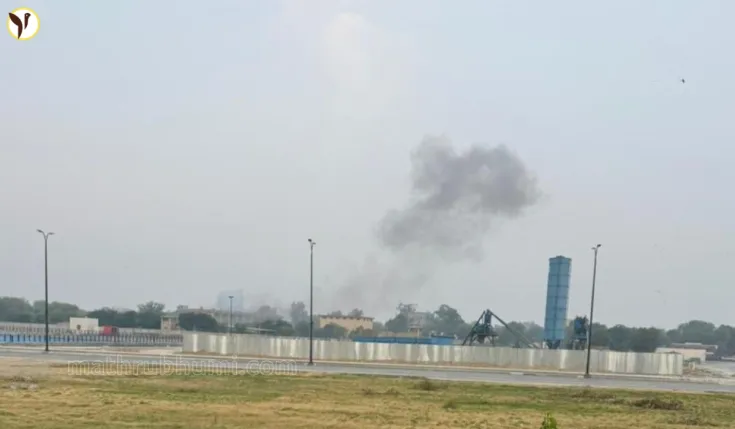Lahore Explosions and Rising Tensions Between India and Pakistan
The past 24 hours have seen a dramatic escalation of tensions between India and Pakistan, following India's "Operation Sindoor," a series of precision strikes on terrorist targets. Explosions in Lahore, Pakistan, have added to the already volatile situation, leaving the world watching with bated breath.
Recent Events in Lahore and Beyond
Multiple loud explosions rocked Lahore on Thursday morning, sparking fear and confusion among residents. The blasts, reported near the upscale Gulberg district and Askari 5, were powerful enough to be heard kilometers away. Following the explosions, Pakistan's Airports Authority temporarily suspended flight operations at major airports, including Lahore, Karachi, and Sialkot. This adds to the already chaotic situation.
- Lahore Explosions: The cause of the explosions in Lahore remains under investigation. Early reports suggest the possibility of drone activity near Walton Airport, adding a layer of complexity to the situation.
- Airport Closures: The temporary closure of major Pakistani airports significantly disrupts domestic and international travel, adding to the overall uncertainty.
- Karachi Explosion: Adding to the concern, an explosion was also reported in Karachi, Pakistan's financial center, close on the heels of the Lahore blasts.
These developments follow India's "Operation Sindoor," a preemptive military action against terrorist camps in Pakistan and Pakistan-occupied Kashmir (PoK). India launched precision strikes on nine locations, citing the April 22nd terrorist attack in Pahalgam, Kashmir, which killed 26 people, mostly Hindu tourists, as the catalyst. India accused Pakistan of supporting the terrorists responsible for the attack.
- Operation Sindoor: This military operation targeted training camps and headquarters of terrorist groups Jaish-e-Mohammed (JeM) and Lashkar-e-Taiba (LeT), believed to be responsible for planning attacks against India.
- International Response: Countries around the world are closely monitoring the situation. Saudi Arabia and Iran have sent representatives to India to discuss the escalating tensions.
- India's All-Party Meeting: The Indian government held an all-party meeting to brief political leaders on Operation Sindoor and the evolving situation. While details remain scarce, the government stated that the operation is ongoing.
The Indian government, in its all-party briefing, emphasized the ongoing nature of the operation and the evolving situation, hence the lack of detailed information at this time. Opposition leaders raised questions about the Prime Minister's absence and media reports of a downed Rafale aircraft, but the government offered no official response to these claims.
The increased shelling along the Line of Control (LoC) by Pakistan following Operation Sindoor has resulted in casualties and displacement among civilian populations in Indian border areas. This escalation further exacerbates the already tense atmosphere between the two nuclear-armed neighbours.
Looking Ahead
The situation remains highly fluid. The explosions in Lahore and Karachi, coupled with the ongoing tensions following Operation Sindoor, raise serious concerns about the potential for further escalation. The international community is urging both India and Pakistan to exercise restraint and engage in diplomatic dialogue to de-escalate the situation and avoid further conflict. All eyes remain on the region as the situation unfolds.






